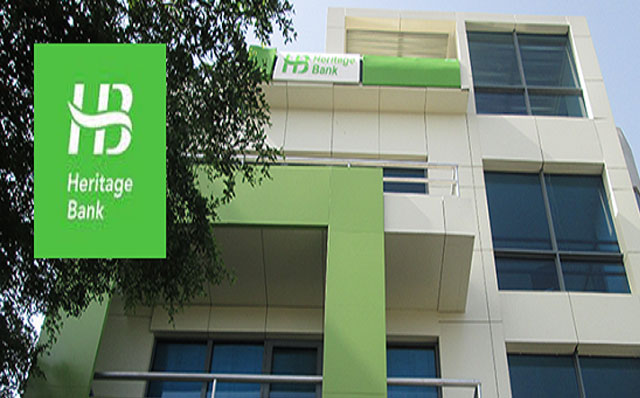The global credit rating agency, Fitch Ratings, recently upgraded its credit rating of Nigeria to B. Fitch said that the economic reforms have improved policy credibility and reduced near-term risks to macroeconomic stability. At the top of the reforms list are the Central Bank of Nigeria’s greater formalisation of FX activity, monetary policy tightening through a combination of policy rate hikes, prudential and operational tools like the open market operations to strengthen monetary policy transmission after years of financial repression, writes Festus Akanbi
The positive Fitch Ratings on Nigeria economy did not come as a surprise to stakeholders who have been keenly watching key economic policies from the monetary and fiscal authorities.
From exchange rate unification to reduced arbitrage in the markets, introduction of electronic FX matching platform and a new FX code to enhance transparency and efficiency in the market as well as deployment of monetary policy tightening to keep inflation on check, the Central Bank of Nigeria (CBN) has demonstrated commitment to achieving sustainable economy growth and exchange rate stability.
Already, the latest Fitch rating moved Nigeria’s long-term foreign-currency issuer default rating (IDR) from negative to stable, meaning that the country stands a better chance of attracting foreign investment, borrowing money on international markets at better interest rates, and boosting investor confidence.
Fitch also applauded government’s commitment to policy reforms implemented since its move to orthodox economic policies in June 2023, including exchange rate liberalisation, monetary policy tightening, and steps to end deficit monetisation as well as fuel subsidies removal.
“These have improved policy coherence and credibility and reduced economic distortions and near-term risks to macroeconomic stability, enhancing resilience in the context of persistent domestic challenges and heightened external risks,” the agency stated.
FX Code/ EFEMS Implementation Continues
The CBN recently took a strategic step to enhance transparency and boost market confidence with the inauguration of the Nigeria Foreign Exchange Code (FX Code) in Abuja. The FX Code has so far ignited naira stability at both official and parallel markets.
CBN Governor Olayemi Cardoso recently launched the FX Code, emphasising integrity, fairness, transparency, and efficiency as critical pillars for driving Nigeria’s economic growth and stability.
He emphasised that the FX Code was built on six core principles: ethics, governance, execution, information sharing, risk management and compliance, as well as confirmation and settlement processes.
These principles, he explained, aligned with international standards while addressing the unique challenges within Nigeria’s foreign exchange market.
According to Cardoso, “The FX Code represents a decisive step forward, setting clear and enforceable standards for ethical conduct, transparency, and good governance in our foreign exchange market. The era of opaque practices is over. The FX Code marks a new era of compliance and accountability. Under the CBN Act 2007 and BOFIA Act 2020, violations will be met with penalties and administrative actions.”
The CBN has stated that while every effort has been made to ensure that the FX Code comprehensively addresses various aspects of market conduct and practice, it is not intended to be exhaustive.
Governor Cardoso also noted that the journey towards market reform is already yielding results.
Beyond the foreign exchange market, the FX Code forms part of the CBN’s renewed focus on compliance across the financial sector. Its six guiding principles, alongside 52 sub-principles, were designed to become the benchmark for conduct across all participating institutions.
Issued as a guideline for the foreign exchange market, the FX Code is backed by the authority of the CBN Act of 2007 and the Banks and Other Financial Institutions Act (BOFIA) of 2020.
Besides FX Code, the apex bank also introduced the Electronic Foreign Exchange Matching System (EFEMS), which has proven effective in other economies in enhancing the functionality of the foreign exchange market.
The EFEMS was meant to check forex market distortions, eliminate speculative activities and instill transparency. The EFEMS, which is commonplace in developed and developing markets offers real-time information on currency rates, trading volumes, and market activity.
X-raying Monetary Policy Decisions
In February, the apex bank retained its benchmark lending rate at 27.50 per cent, marking the first time it has opted to maintain the rate in almost three years.
CBN had been persistent in raising the lending rates since March 2022 when the rate stood at 11.5 per cent.
The Monetary Policy Committee (MPC) of the bank stated that its unanimous decision was influenced by recent macroeconomic developments, which it noted with satisfaction.
These include stability in the foreign exchange market, leading to an appreciation of the exchange rate, and the gradual moderation in petrol prices, both of which are expected to positively impact price dynamics in the near to medium term.
The benchmark rate is the standard interest rate set by central banks, used to guide lending rates and influence economic activities, inflation, and financial stability. The central bank also retained the asymmetric corridor around the MPR at +500 to -100 basis points.
Cardoso said the committee voted to retain the Cash Reserve Ratio (CRR) at 50 per cent for commercial banks, while maintaining the CRR of merchant banks at 16 per cent.
Other Highlights of the Ratings Upgrade
Fitch expects the macroeconomic policy stance to support the move to lower inflation and sustain improvements in the foreign exchange (FX) market’s operation, though it will likely remain much higher than rating peers.
It also expects “a continued reduction in external vulnerabilities through further easing of domestic FC supply constraints, while renewed energy sector reforms should help sustain current account surpluses”.
It added: “Greater formalisation of FX activity including the CBN’s recent introduction of an electronic FX matching platform and a new FX code to enhance transparency and efficiency, along with monetary policy tightening, has led to a greater rise in FX liquidity and general stability in the FX market after a 40% depreciation in 2024, closing the spread between the official and parallel exchange rates.
“Net official FX inflows through the CBN and autonomous sources rose by about 89% in 4Q24, compared to an 8% rise in 4Q23. We expect continued formalisation of FX activity to support the exchange rate, although we anticipate modest depreciation in the short term.
“The CBN has tightened monetary conditions through a combination of policy rate hikes to 27.5% (up 875bp since February 2024) and use of prudential and operational tools such as open market operations (at rates closely aligned to the MPR) to strengthen monetary policy transmission after years of financial repression.”
Reacting to the Fitch rating, Oladele Adeoye, Chief Rating Officer at DataPro, a Nigerian credit rating agency, said it was a positive development “in all ways.”
Adeoye said it would boost investors’ confidence in Nigeria’s Eurobond as people would readily subscribe whenever it is issued.
“Good rating also implies lower cost of funds. Of course, there will be an inflow of foreign currency into the economy, and this will give further room for the CBN to support the local currency and strengthen the exchange rate,” he said.
On how the government can improve on this, Adeoye said: “Nigeria must increase productivity that can boost export and lower import. This will enhance the external reserve and improve public finance.
“We need to continue to improve our revenue base, and this includes both oil and non-oil revenue.”
Registrar/Chief Executive Officer, Nigeria Institute of Credit Administration (NICA) Chartered, Prof. Chris Onalo, said the national body for credit management said the Fitch rating “means a lot.”
He said he could not agree less with the agency’s rating. “It is solid, it is stable, it is progressing, and it has a future outlook,” Onalo said.
On further steps the government can take on the economy, he said: “The government should focus on expanding the economy. In other words, all-inclusive economic activities.
He said: “The Fitch Ratings shows that the country has a stable outlook in terms of investment, and that can have a positive effect on our foreign direct investments.
Other analysts described the Fitch rating as a significant step forward in restoring investor confidence and economic stability.”
According to them, the development means improving Nigeria’s creditworthiness, which could open up new opportunities for the country across several sectors.
“A ‘B’ rating from Fitch is a step up, which is generally a positive sign. It means Fitch believes Nigeria’s creditworthiness has improved,” Dr. Balogun said.
He explained that the upgrade could enhance Nigeria’s attractiveness to international investors.
“A better credit rating makes Nigeria a more attractive place for investors. This could lead to increased foreign investment in various sectors,” he noted.
One of the major implications of the improved rating is that Nigeria may now be able to borrow at lower interest rates.
With positive Fitch Ratings, which would lead to potentially lower borrowing costs, the government could invest more in infrastructure development – roads, bridges and power plants – thereby attracting both local and international capital.
Such investments would support the government’s continued drive for infrastructure development and sustainable economic growth.



